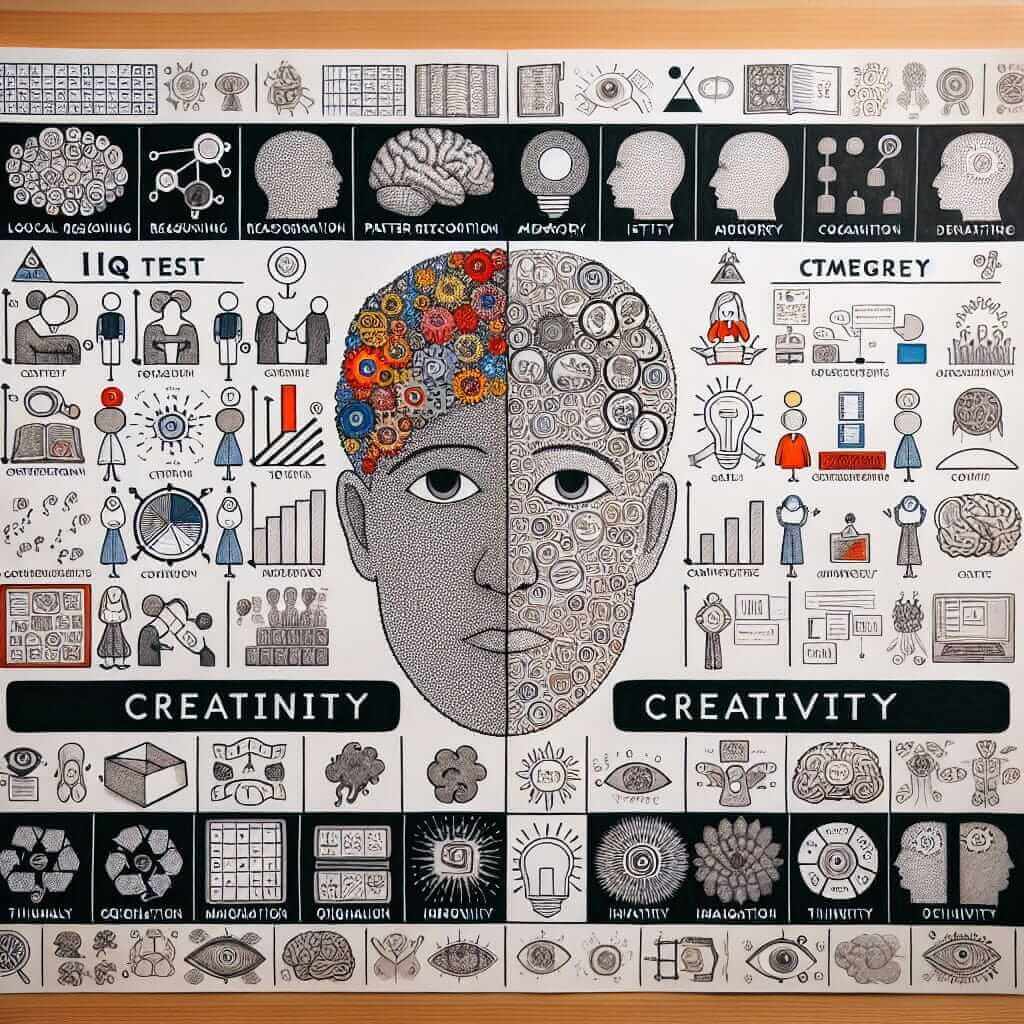As an IELTS instructor with over 20 years of experience, I often encounter students who are curious about the relationship between intelligence, creativity, and how it might appear in the IELTS Reading section. A common question is: “Does an IQ test prove creativity?” The answer, like most things in life, is not a simple yes or no. Let’s delve into this complex issue, exploring its relevance to your IELTS preparation.
Understanding IQ Tests and Creativity in the Context of IELTS
It’s crucial to recognize that IQ tests primarily measure specific cognitive abilities like logical reasoning, pattern recognition, and memory. While these skills are undoubtedly important, they represent only a fragment of the multifaceted concept of intelligence.
Creativity, on the other hand, is characterized by originality, imagination, and the ability to generate novel ideas. It involves divergent thinking, exploring multiple solutions, and thinking outside the box – aspects not directly assessed by traditional IQ tests.
Therefore, while a high IQ might correlate with certain aspects of creativity, it’s inaccurate to claim that an IQ test can definitively “prove” creativity.

Why This Matters for IELTS Reading
The IELTS Reading test assesses your ability to comprehend complex texts, extract key information, and understand the writer’s opinion. You might encounter passages discussing intelligence, creativity, or standardized testing.
Understanding the nuances of these concepts and their interconnectedness can be invaluable. It enables you to:
- Interpret texts more accurately: Recognizing the limitations of IQ tests in measuring creativity helps you grasp the author’s true message.
- Formulate informed opinions: You can develop balanced viewpoints on related issues, which might be useful in the Writing section.
- Navigate vocabulary effectively: Expect to encounter synonyms and related terms for “intelligence,” “creativity,” “assessment,” and “cognitive abilities.”
Analyzing an Example
Let’s imagine you encounter an IELTS Reading passage about the limitations of standardized testing. One paragraph states:
“While standardized tests like IQ tests excel at measuring convergent thinking, which involves arriving at a single correct answer, they often fall short in assessing divergent thinking, a cornerstone of creativity. This discrepancy highlights the need for a more holistic evaluation of an individual’s capabilities.”
By understanding the distinction between convergent and divergent thinking, you can quickly grasp the author’s argument. This knowledge helps you answer questions accurately, even if the exact phrase “IQ test doesn’t prove creativity” isn’t explicitly stated.
Tips for Success
- Broaden your reading: Explore articles and journals discussing intelligence, creativity, and educational psychology.
- Develop critical thinking: Don’t accept everything you read at face value. Analyze the author’s perspective and supporting evidence.
- Enrich your vocabulary: Familiarize yourself with terms related to cognitive science, psychology, and education.
Remember, the IELTS exam tests your ability to understand complex information and form well-rounded perspectives. By developing a nuanced understanding of topics like IQ and creativity, you equip yourself to excel in the Reading section and beyond.